Surah Al Isra Ayat 17 23 Translation With Tafsir
Here is Surah Al Isra ayat 17 23 Arabic text, transliteration, and translation. There is also explanation of these verses adopted from Tafseer book by Imam Ala Maududi.
Advertisements
Surah Al-isra Ayat 17-23 In Arabic Text
- وَكَمْ أَهْلَكْنَا مِنَ ٱلْقُرُونِ مِنۢ بَعْدِ نُوحٍۢ ۗ وَكَفَىٰ بِرَبِّكَ بِذُنُوب عِبَادِهِۦ خَبِيرًۢا بَصِيرًۭا.
- مَّن كَانَ يُرِيدُ ٱلْعَاجِلَةَ عَجَّلْنَا لَهُۥ فِيهَا مَا نَشَآءُ لِمَن نُّرِيدُ ثُمَّ جَعَلْنَا لَهُۥ جَهَنَّمَ يَصْلَىٰهَا مَذْمُومًۭا مَّدْحُورًۭا.
- وَمَنْ أَرَادَ ٱلْـَٔاخِرَةَ وَسَعَىٰ لَهَا سَعْيَهَا وَهُوَ مُؤْمِنٌۭ فَأُو۟لَـٰٓئِكَ كَانَ سَعْيُهُم مَّشْكُورًۭا.
- كُلًّۭا نُّمِدُّ هَـٰٓؤُلَآءِ وَهَـٰٓؤُلَآءِ مِنْ عَطَآءِ رَبِّكَ ۚ وَمَا كَانَ عَطَآءُ رَبِّكَ مَحْظُورًا.
- ٱنظُرْ كَيْفَ فَضَّلْنَا بَعْضَهُمْ عَلَىٰ بَعْضٍۢ ۚ وَلَلْـَٔاخِرَةُ أَكْبَرُ دَرَجَـٰتٍۢ وَأَكْبَرُ تَفْضِيلًۭا.
- لَّا تَجْعَلْ مَعَ ٱللَّهِ إِلَـٰهًا ءَاخَرَ فَتَقْعُدَ مَذْمُومًۭا مَّخْذُولًۭا
- . وَقَضَىٰ رَبُّكَ أَلَّا تَعْبُدُوٓا۟ إِلَّآ إِيَّاهُ وَبِٱلْوَٰلِدَيْنِ إِحْسَـٰنًا ۚ إِمَّا يَبْلُغَنَّ عِندَكَ ٱلْكِبَرَ أَحَدُهُمَآ أَوْ كِلَاهُمَا فَلَا تَقُل لَّهُمَآ أُفٍّۢ وَلَا تَنْهَرْهُمَا وَقُل لَّهُمَا قَوْلًۭا كَرِيمًۭا
Transliteration
- Wa kam ahlaknaa minal qurooni min ba’di Nooh; wa kafaa bi Rabbika bizunoobi ‘ibaadihee Khabeeram Baseeraa.
- Man kaana yureedul ‘aajilata ‘ajjalnaa lahoo feehaa maa nashaaa’u liman nureedu summa ja’alnaa lahoo Jahannama yaslaahaa mazmoomammad hooraa.
- Wa man araadal Aakhirata wa sa’aa lahaa sa’yahaa wa huwa mu’minun fa ulaaa’ika kaana sa’yuhum mashkooraa.
- Kullan numiddu haaa ‘ulaaa’i wa haaa’ulaaa’i min ‘ataaa’i rabbik; wa maa kaana ‘ataaa’u rabbika mahzooraa.
- Unzur kaifa faddalnaa ba’dahum ‘alaa ba’d; wa lal Aakhiratu akbaru darajaatinw wa akbaru tafdeelaa.
- Laa taj’al ma’al laahi ilaahan aakhara fataq’uda mazoomam makhzoolaa.
- Wa qadaa Rabbuka allaa ta’budooo illaaa iyyaahu wa bilwaalidaini ihsaanaa; immaa yablughanna ‘indakal kibara ahaduhumaaa aw kilaahumaa falaa taqul lahumaaa uffinw wa laa tanharhumaa wa qullahumaa qawlan kareemaa.
Surah Al Isra Ayat 17 23 English Translation
Here you can read various translations of verses 17 to 23 of surah Al Isra.
Sahih International
- And how many have We destroyed from the generations after Noah. And sufficient is your Lord, concerning the sins of His servants, as Acquainted and Seeing.
- Whoever should desire the immediate – We hasten for him from it what We will to whom We intend. Then We have made for him Hell, which he will [enter to] burn, censured and banished.
- But whoever desires the Hereafter and exerts the effort due to it while he is a believer – it is those whose effort is ever appreciated [by Allah].
- To each [category] We extend – to these and to those – from the gift of your Lord. And never has the gift of your Lord been restricted.
- Look how We have favored [in provision] some of them over others. But the Hereafter is greater in degrees [of difference] and greater in distinction.
- Do not make [as equal] with Allah another deity and [thereby] become censured and forsaken.
- And your Lord has decreed that you not worship except Him, and to parents, good treatment. Whether one or both of them reach old age [while] with you, say not to them [so much as], “uff,” and do not repel them but speak to them a noble word.
Yusuf Ali
- How many generations have We destroyed after Noah? and enough is thy Lord to note and see the sins of His servants.
- If any do wish for the transitory things (of this life), We readily grant them – such things as We will, to such person as We will: in the end have We provided Hell for them: they will burn therein, disgraced and rejected.
- Those who do wish for the (things of) the Hereafter, and strive therefor with all due striving, and have Faith,- they are the ones whose striving is acceptable (to Allah).
- Of the bounties of thy Lord We bestow freely on all- These as well as those: The bounties of thy Lord are not closed (to anyone).
- See how We have bestowed more on some than on others; but verily the Hereafter is more in rank and gradation and more in excellence.
- Take not with Allah another object of worship; or thou (O man!) wilt sit in disgrace and destitution.
- Thy Lord hath decreed that ye worship none but Him, and that ye be kind to parents. Whether one or both of them attain old age in thy life, say not to them a word of contempt, nor repel them, but address them in terms of honour.
Abul Ala Maududi
- Many a generation has been destroyed by Our command since Noah’s time. Your Lord is well aware and fully observant of the sins of His servants.
- If anyone desires immediate benefits, We hasten to grant whatever benefits We will in the present life to whomsoever We please, but thereafter We decree for him Hell wherein he shall burn, condemned and rejected.
- But he who desires the Hereafter and strives for it in the manner he should, and is a true believer, his striving will come to fruition.
- To all of these as well as those We shall provide the wherewithal of this life in the present world by dint of your Lord’s Bounty; and from none shall the Bounty of your Lord be withheld.
- See, how We have exalted some above others in this world, and in the Life to Come they will have higher ranks and greater degrees of excellence over others.
- Do not set up any other god with Allah lest you are rendered humiliated and helpless.
- Your Lord has decreed: (i) Do not worship any but Him; (ii) Be good to your parents; and should both or any one of them attain old age with you, do not say to them even “fie” neither chide them, but speak to them with respect,
Muhsin Khan
- And how many generations have We destroyed after Nuh (Noah)! And Sufficient is your Lord as an All-Knower and All-Beholder of the sins of His slaves.
- Whoever wishes for the quick-passing (transitory enjoyment of this world), We readily grant him what We will for whom We like. Then, afterwards, We have appointed for him Hell, he will burn therein disgraced and rejected, (far away from Allah’s Mercy).
- And whoever desires the Hereafter and strives for it, with the necessary effort due for it (i.e. do righteous deeds of Allah’s Obedience) while he is a believer (in the Oneness of Allah Islamic Monotheism), then such are the ones whose striving shall be appreciated, thanked and rewarded (by Allah).
- To each these as well as those We bestow from the Bounties of your Lord. And the Bounties of your Lord can never be forbidden.
- See how We prefer one above another (in this world) and verily, the Hereafter will be greater in degrees and greater in preference.
- Set not up with Allah any other ilah (god), (O man)! (This verse is addressed to Prophet Muhammad SAW, but its implication is general to all mankind), or you will sit down reproved, forsaken (in the Hell-fire).
- And your Lord has decreed that you worship none but Him. And that you be dutiful to your parents. If one of them or both of them attain old age in your life, say not to them a word of disrespect, nor shout at them but address them in terms of honour.
Pickthall
- How many generations have We destroyed since Noah! And Allah sufficeth as Knower and Beholder of the sins of His slaves.
- Whoso desireth that (life) which hasteneth away, We hasten for him therein what We will for whom We please. And afterward We have appointed for him hell; he will endure the heat thereof, condemned, rejected.
- And whoso desireth the Hereafter and striveth for it with the effort necessary, being a believer; for such, their effort findeth favour (with their Lord).
- Each do We supply, both these and those, from the bounty of thy Lord. And the bounty of thy Lord can never be walled up.
- See how We prefer one of them above another, and verily the Hereafter will be greater in degrees and greater in preferment.
- Set not up with Allah any other god (O man) lest thou sit down reproved, forsaken.
- Thy Lord hath decreed, that ye worship none save Him, and (that ye show) kindness to parents. If one of them or both of them attain old age with thee, say not “Fie” unto them nor repulse them, but speak unto them a gracious word.
Dr. Ghali
- And how many generations We have caused to perish even after Nûh; (Noah) and your Lord suffices as One Who is Ever-Cognizant of (and) Ever-Beholding of the guilty (deeds) of His bondmen.
- Whoever is willing (to gain) (this) hasty (world), We (quickly) hasten for him therein whatever We decide to whomever We will; thereafter We make for him Hell where he will roast, reprobated and (regretfully) rejected.
- And whoever is willing (to gain) the Hereafter and diligently endeavors after it as he should (endeavor), being a believer, then those, their endeavor is to be thanked.
- Each do We supply, these and these (too) from your Lordصs gift, and in no way can your Lord’s gift be walled up. Look how We have graced some of them over the others, (Literally: over some “others”) and indeed the Hereafter is greater in degrees and greater with marked graciousness.
- Do not make up with Allah another god, for then you will sit reprobated (and) abandoned.
- And your Lord has decreed that you should not worship any except Him (only) and (to show) fairest companionship to parents; in case ever one or both of them reaches old age (Literally: being great “in years”) in your presence, do not say to them, “Fie!” nor scold them; and speak to them respectful words (Literally: say to them an honorable saying).
Abdel Haleem
- How many generations We have destroyed since Noah! Your Lord knows and observes the sins of His servants well enough.
- If anyone desires [only] the fleeting life, We speed up whatever We will in it, for whoever We wish; in the end We have prepared Hell for him in which to burn, disgraced and rejected.
- But if anyone desires the life to come and strives after it as he should, as a true believer, his striving will be thanked.
- To both the latter and the former, We give some of your Lord’s bounty. [Prophet], your Lord’s bounty is not restricted-.
- See how We have given some more than others- but the Hereafter holds greater ranks and greater favours.
- Set up no other god beside God, or you will end up disgraced and forsaken.
- Your Lord has commanded that you should worship none but Him, and that you be kind to your parents. If either or both of them reach old age with you, say no word that shows impatience with them, and do not be harsh with them, but speak to them respectfully.
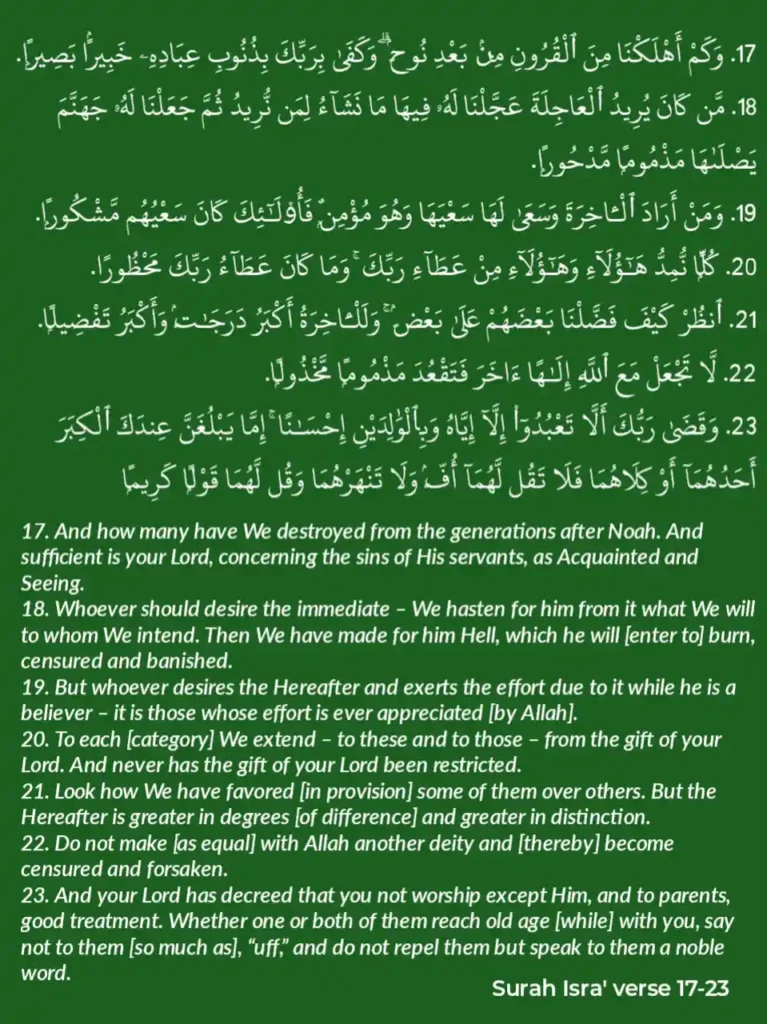
Explanation Of the Verses By Sheikh Ala-Maududi
(17:18) If anyone desires immediate benefits, We hasten to grant whatever benefits We will in the present life to whomsoever We please, but thereafter We decree for him Hell wherein he shall burn, condemned and rejected.
The Arabic word ajilah literally means something which can be had immediately, but the Quran employs it as a term for “this world” which yields its advantages and results in this worldly life.
Its antonym is Akhirat (Hereafter) which will yield its advantages and results after death in the life of the next world.
Advertisements
The person who does not believe in the life of the Hereafter deserves Hell, because he strives only for the successes and good things of this world and his endeavors are confined to material objects.
Consequently, such a person becomes a mere worshiper of this world and adopts wrong conduct, for he has no sense of personal responsibility and accountability to God and ultimately deserves the torment of Hell.
Check out Surah Hud Ayat 65.
(17:20) To all of these as well as those We shall provide the wherewithal of this life in the present world by dint of your Lord’s Bounty; and from none shall the Bounty of your Lord be withheld.
Allah gives the provisions of this world both to those who strive for this world and to those who strive for the Hereafter, but it is the gift of Allah alone and not of anyone else.
Advertisements
It does not lie in the power of the worshipers of the world to deprive the seekers after the Hereafter of these provisions, nor have the seekers after the Hereafter any power to withhold these provisions from the worshipers of the world.
This is to show that the seekers of the Hereafter have been exalted over the worshipers of the world even in this worldly life.
However, this exaltation is not in regards to the good things of this world, rich food and dresses, palatial dwellings, luxurious means of travelling and other grand things.
Advertisements
They enjoy that true honor, love and goodwill which is denied to the tyrants and the rich people in spite of the fact that they may be indigent.
This is because whatever the seekers of the Hereafter get in this world, it is earned in righteous and honest ways, while the worshipers of the world amass wealth by employing dishonest and cruel ways.
Then the former spend what they get with prudence and righteousness. They fulfill the obligations they owe to others. They spend their money in the way of Allah and to please Allah on the needy and the indigent.
In contrast to them, the worshipers of this world spend their money in the enjoyment of luxuries, wicked works, corruption and spreading other evil things.
This makes the former models of God worship and purity in every respect and distinguishes them so clearly from the worshipers of the world that they shine in exaltation over the latter.
These things clearly indicate that in the next world the rewards of the seekers of the Hereafter will be far greater and their superiority far higher than those of the worshipers of the world.
In the succeeding verses, those main basic principles have been put forward on which Islam desires to build the entire structure of human life.
These form the manifesto of the invitation of the Prophet (peace be upon him) declared by him at the end of the Makki stage of his mission, and the eve of the new stage at Al-Madinah so that it should be known to all that the new Islamic society and state were going to be built on such and such ideological, moral, cultural economic and legal principles.
This commandment is very comprehensive. It prohibits not only the worship of anyone except Allah but also implies that one should obey and serve and submit to Allah alone without question.
One should accept His commandments and law alone to be worthy of obedience and His authority to be supreme above all.
This was not merely an instruction confined to a religious creed and individual practice but it served as the foundation of the moral, cultural, and political system which was practically established in Al-Madinah by the Prophet (peace be upon him). Its first and foremost principle was that Allah alone is the Master, Sovereign and Law-giver.
Advertisements

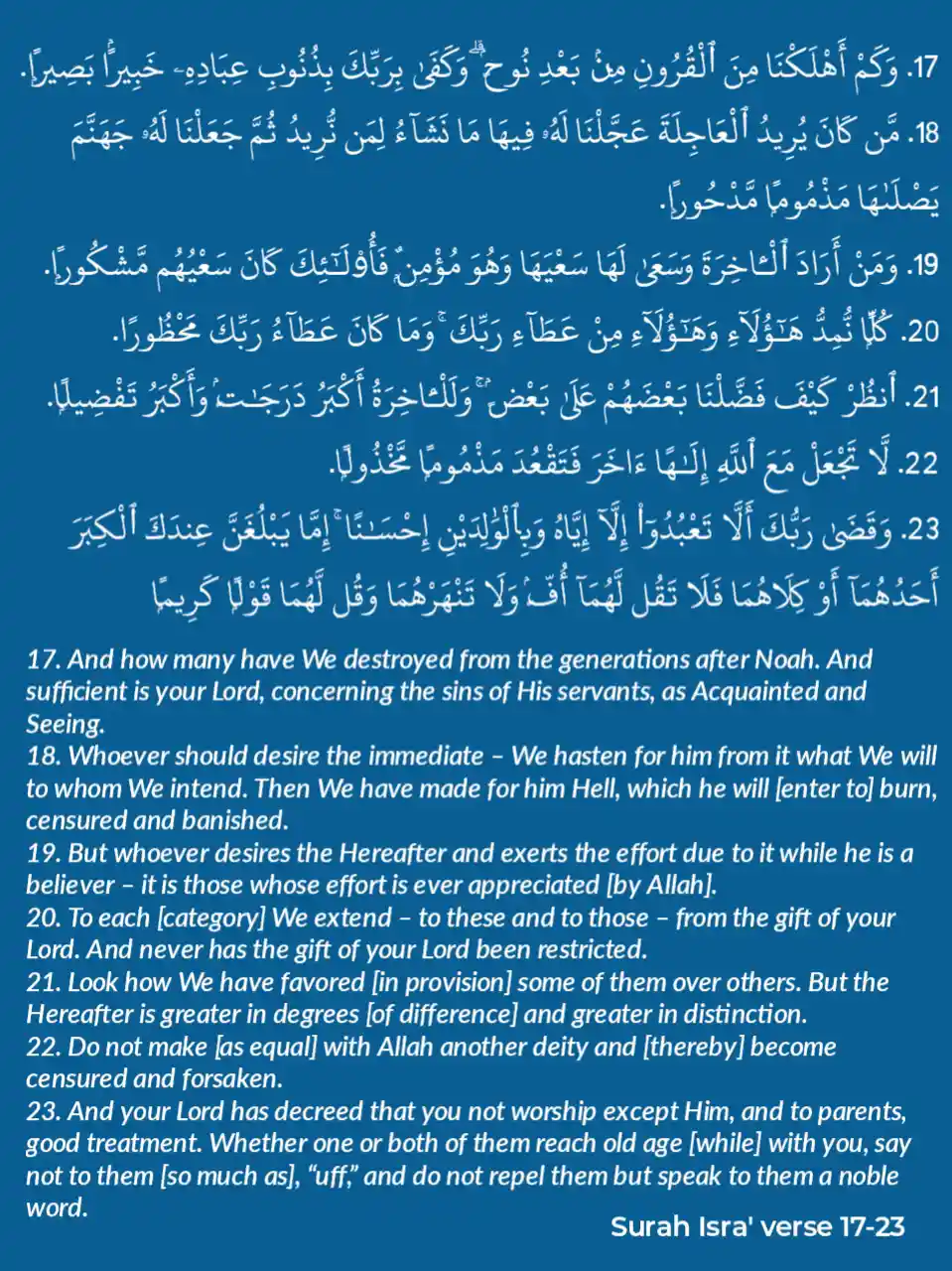
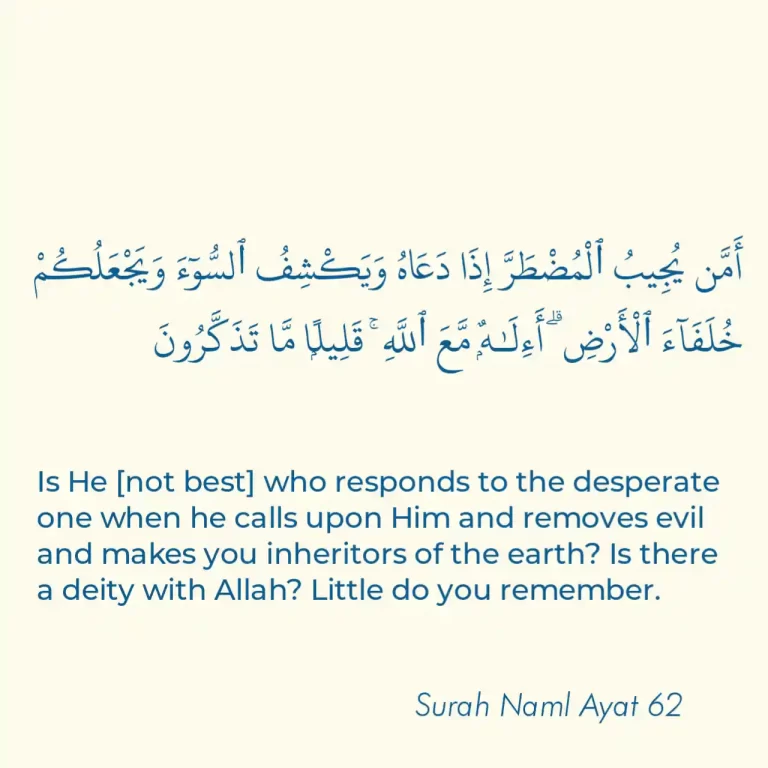
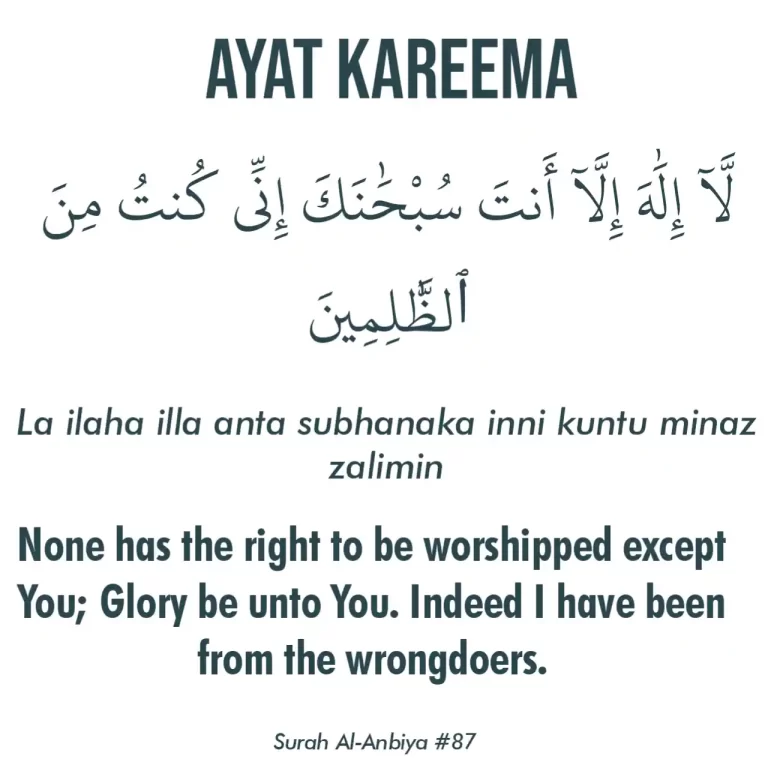
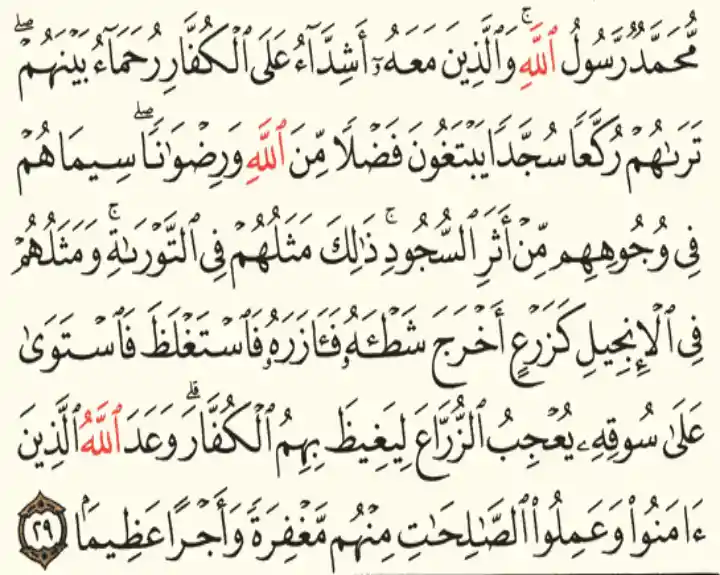

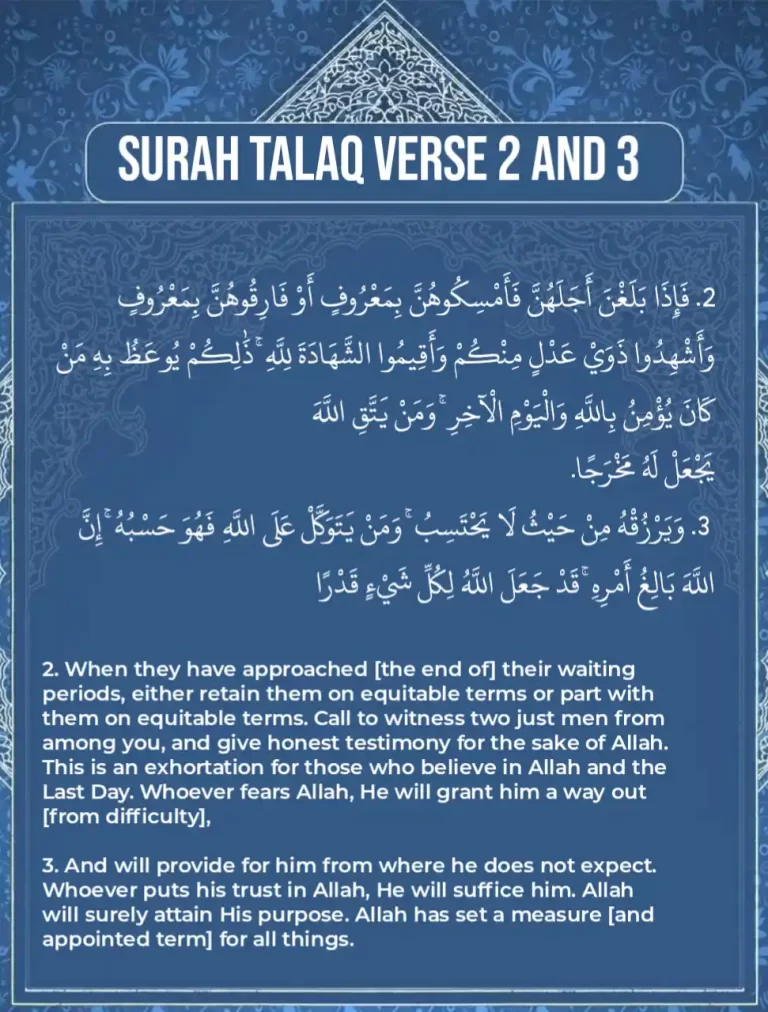
One Comment